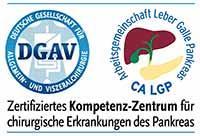Treatment of Pseudomyxoma peritonei with CRS and HIPEC - hyperthermic intraperitoneal chemotherapy
Treatment prices are regulated by national law of the corresponding countries, but can also include additional hospital coefficients. In order to receive the individual cost calculation, please send us the request and medical records.

Department of General, Abdominal, Transplant, Hepatopancreatobiliary, Colorectal, Endocrine, Bariatric Surgery and Hernia Surgery
The Department of General, Abdominal, Transplant, Hepatopancreatobiliary, Colorectal, Endocrine, Bariatric Surgery and Hernia Surgery provides the full range of services in the areas of its specialization and holds a leading position at the national and international levels in terms of the number of surgical interventions performed and their success. Of particular interest are operations for treating diseases of the bowel, stomach, esophagus, pancreas, liver, gallbladder, and bile ducts, and endocrine glands. The department's doctors have excellent skills in the surgical treatment of cancer, surgery for liver, kidney, pancreas, and small intestine transplants, and operations for morbid obesity. The department's operating rooms are the pride of the medical facility, since they have all the necessary technical options for performing operations with the da Vinci surgical system, image-guided interventions, and endoscopic surgical procedures, which are characterized by minimal trauma rates.







Department of General and Abdominal Surgery, Hepatopancreatobiliary Surgery, Colorectal Surgery, Endocrine Surgery, Hernia Surgery and Bariatric Surgery
The Department of General and Abdominal Surgery, Hepatopancreatobiliary Surgery, Colorectal Surgery, Endocrine Surgery, Hernia Surgery and Bariatric Surgery offers the full range of effective surgical treatments in accordance with modern medical standards. Operations of varying complexity are performed on the stomach, colon, pancreas, liver, gallbladder, bile ducts, rectum, thyroid gland, and parathyroid glands in the department's operating rooms every day. The department's primary focus is the surgical treatment of malignant gastrointestinal tumors. The medical facility is certified in this area by the German Cancer Society (DKG). The team of endocrine surgeons specializes in the treatment of diseases of the thyroid gland, parathyroid glands, and adrenal glands. Patients with morbid obesity are also successfully operated on here. In their work, the department’s specialists primarily use minimally invasive surgical techniques, which virtually eliminate trauma to healthy tissue during the intervention. The department's operating suite is equipped with an innovative da Vinci Surgical System, which allows the doctors to perform sparing and high-precision surgical interventions. The specialists of the medical facility strictly adhere to hygiene and safety standards and create the most comfortable conditions for each patient during their hospital stays.







Department of General and Abdominal Surgery
According to the Focus magazine, the Department of General and Abdominal Surgery ranks among the top German departments specializing in bowel cancer treatment! The department offers the full range of classical and minimally invasive methods for the treatment of common surgical diseases, cancer pathologies, diseases of the endocrine organs, proctological problems. The specialization also covers transplant surgery (liver, kidney and pancreas transplantation). The department is certified by the German Cancer Society for its outstanding results in the treatment of bowel, pancreatic, stomach and liver cancers.






Pseudomyxoma peritonei (PMP) is a very uncommon form of cancer, originating from the appendix. With this condition, the abdominal cavity fills with mucin, a gel-like substance, which sets PMP apart from more typical forms of cancer. Because of its distinctive nature, treating PMP requires the involvement of highly skilled and experienced doctors, and often demands the use of advanced treatment options, such as cytoreductive surgery (CRS) and hyperthermic intraperitoneal chemotherapy (HIPEC).
Content
- What exactly are CRS and HIPEC?
- Specialized centers for CRS and HIPEC
- Treatment abroad for PMP patients
Pseudomyxoma peritonei is a malignant tumor that most commonly starts in the appendix and spreads throughout the abdomen.
CRS involves removing the primary tumor (such as the appendiceal cancer) and the affected areas of the peritoneum.
HIPEC is pumping a high-dose chemotherapy solution into the abdomen right after the surgery, an effective way to destroy peritoneal tumors.
CRS and HIPEC are recommended for all patients with peritoneal pseudomyxoma whose condition allows them to tolerate surgery.
The University Hospital of Ludwig Maximilian University of Munich, the Charite University Hospital Berlin and the University Hospital Ulm specialize in CRS and HIPEC.
The cost of the treatments ranges from 52,000 euros to 92,000 euros. On the Booking Health website you will find a list of specialized hospitals with current prices for the treatment.
What exactly are CRS and HIPEC?
This is a dual-method strategy that combines cytoreductive surgery with hyperthermic intraperitoneal chemotherapy. Various scientific publications and reviews have found improvements in patient longevity when this treatment regimen is used. In some cases, patients have lived for 10 to 15 years after the completion of their treatment, although outcomes can vary depending on multiple factors such as disease stage and the aggressiveness of the tumor.
Cytoreductive surgery aims to remove all visible tumors within the abdominal cavity. This procedure is complex and requires a high level of expertise from specialists. Surgeons inspect the peritoneal cavity and excise tumor masses and mucin to the greatest extent possible.
After CRS, the HIPEC procedure is performed. Usually, it involves:
- Filling the cleansed abdominal cavity with heated chemotherapeutic drugs.
- Circulating these drugs in the abdomen at a controlled temperature for approximately 60-90 minutes.
- Removing the chemotherapeutic solution from the abdomen and carefully rinsing the area.
The mechanism behind HIPEC is hyperthermic intraperitoneal chemoperfusion. The idea is to enhance the effectiveness of chemotherapy drugs by elevating their temperature, thus making them more potent in destroying cancer cells. Normal cells are more resilient, able to withstand temperatures up to 44°C, while cancer cells are already damaged at 40°C. During the HIPEC procedure, a specifically tailored temperature setting allows the treatment to focus on eradicating the cancer cells while mostly leaving the normal cells unharmed.
Overall, the combination of CRS and HIPEC for pseudomyxoma peritonei has a number of considerable advantages:
- HIPEC enables chemotherapy drugs to be delivered directly into the abdomen at higher doses, which makes them more effective than traditional chemotherapy.
- Both CRS and HIPEC have been shown to reduce the risk of cancer reappearing post-surgery.
- Many patients have significantly extended lifespans after receiving this treatment.
Specialized centers for CRS and HIPEC
Considering the complexity of CRS and HIPEC procedures, selecting a specialized center and team of highly trained doctors is critical for successful outcomes.
For example, the are multiple clinics in Germany, specializing in this treatment method:
- Ludwig Maximilian University Hospital in Munich, widely known for its specialization in abdominal tumors.
- Charité University Hospital in Berlin is renowned across Europe, particularly its Department of General, Abdominal, and Vascular Surgery, where hyperthermic chemotherapy is performed.
- Helios Clinic in Krefeld has a Department of Abdominal and Minimally Invasive Surgery, which practices many innovative methods, including CRS and HIPEC.
The cost of HIPEC ranges from €52.333 to €92.355 and depends on the type of cancer, the extent to which it has spread and the level of the hospital.
Treatment abroad for PMP patients
Patients from other countries seeking specialized pseudomyxoma peritonei treatment can contact Booking Health for a complete care plan and benefits package. You can also read more about HIPEC procedure here.
- Personalized treatment. During this stage, a team of specialists reviews your medical records and suggests the best treatment options.
- Affordable cost. Booking Health negotiates prices with hospitals to provide cost-effective treatment schemes.
- Coordination. You will get a complete schedule of the medical process, so no important steps are missed.
- Convenience. Booking Health assists in logistical issues: the company’s representative will help you to book a flight and schedule a hospital appointment.
Although the investment in treating PMP can be substantial Booking Health helps by negotiating prices and making the treatment affordable. The cost of CRS and hyperthermic intraperitoneal chemotherapy (HIPEC) for pseudomyxoma peritonei is between 52,320 EUR and 92,300 EUR. Patients typically stay in the hospital for about 10 days after CRS and HIPEC, which is important to remember while scheduling and understanding the overall cost of the treatment.
With Booking Health, you can be sure that you get the treatment from the top professional in the field, while choosing the best plan of treatment that suits your specific condition.
Authors:
The article was edited by medical experts, board-certified doctors Dr. Nadezhda Ivanisova and Dr. Vadim Zhiliuk. For the treatment of the conditions referred to in the article, you must consult a doctor; the information in the article is not intended for self-medication!
Sources:

